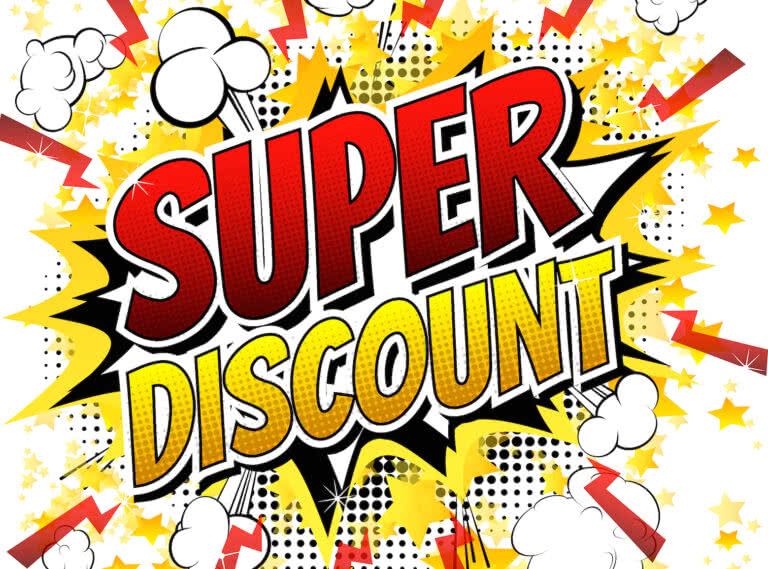If you hope to maximise ticket sales, then you have to sweeten the offer in some way or another. People like deals, and if they can get something for less, then they will be more inclined to act.
As the event planner, you have to come up with various deals to attract people that otherwise may not have been all that interested. Through special offers, you incentivise the very act of buying a ticket, thus increasing sales and perhaps even reaching sold-out status.
Related: When Do People Buy Event Tickets?
Here are 7 ways to create event special offers with the WOW Factor, that will help you sell more tickets and help your attendees feel like they’ve got a great deal.
- Make the offer exclusive
While you should implement various offers at various stages in the weeks leading up to the event, no two offers should be alike; each one needs to be exclusive. You may, for example, provide a 50% discount exclusive to those who attended the company’s previous event. If you do this, then don’t offer an early bird sale later on that also provides a 50% discount. Those who got the discount for attending the prior event may feel jaded knowing that a larger demographic is getting an identical discount that they thought was supposed to be exclusive to them.
Since a good deal of attendees will likely be prior event goers, give them the most generous offer. Give them that 50% discount. Later on, begin the early bird sale with a 40% discount. Even further down, provide yet another chance at a discount of about 30%.
- Avoid excessive discounts
While people like discounts and exclusive offers, be careful not to lower the cost too much. Selling underpriced tickets can be counterproductive for two reasons. First, keep in mind that part of the reason of selling tickets is to make a profit and recuperate overhead costs. If a discount causes prices to drastically dip, then revenue may take a hit, and you can expect to get an earful from the company accounting department.
Secondly, you also want to avoid overly generous ticket discounts. This could give attendees the sense that the event is not really worth all that much if tickets are too cheap. People tend to believe that value is directly tied to cost, and they may associate a low ticket cost with a subpar event. Of course, costs shouldn’t be too high either; you have to find the happy middle ground with respects to pricing. When it comes to discounts, there is no specific percentage set in stone. It comes down to your budget and how much you can lower the cost while still making a profit, or breaking even at the very least.
Related: Make More Money With A Winning Event Pricing Strategy
- Make the offer appealing
The discount alone does not make the offer all that attractive. To make it especially appealing, throw in a few freebies. Here are a few appealing yet inexpensive freebies to consider:
- Promotional t-shirt
- Sweepstake entry
- 10% discount off any online purchase
- Free shipping for next online purchase
Instead of offering these items to every person, offer them to a select few, perhaps the first 20 people who buy their ticket during the limited-time discount deal. This conveys a sense of urgency and propels people to quickly act if they want to be the lucky few to get that free item.
For those who did not act quickly enough, you should still give them some freebie item of a lesser value, such as a necklace keychain instead of that free membership upgrade or whatever you offered to the first X number of ticket buyers.
- Avoid low-value discounts
It was discussed earlier about how excessively high discounts can be counterproductive. By the same token, an excessively low discount can be just as bad, and perhaps even come off as insulting. What does it say about your company if you provide a 5% discount?
For one, it says that you’re a cheapskate that doesn’t know the meaning of providing value to your customers. Secondly, how much does your customers really benefit if they still have to foot 95% of the original ticket price? It’s hardly likely to spur action from the customers’ end, that’s for sure.
So what’s the minimum discount? There’s no strict rule here, though it should generally be no lower than 20%. Keeping it between 20% and 50% is actually a good rule of thumb to follow.
Related: Proving the Value of Your Event
- Incorporate pop-up messages
Here’s a neat trick that incorporates a discount deal. For people that proceeded to the registration page but click the back button, you can have a pop-up page appear asking the visitor to reconsider. Provide a discount to entice the person to complete the registration process. The discount should be enough to get visitors to think twice, or at least reconsider returning later with the discount in the back of their minds.
The discount, though, should not exceed or even be the same as any of the exclusive offers you provided. Once again, you don’t want your loyal customers feeling jaded because others got a deal that they thought were supposed to be limited to premium members.
- Other offers besides discounts
Not every special offer has to be accompanied by a discount. Some can just include a promotional item or two thrown in. It can also include a 2-for-the-price-of-1 type of deal or buy-one-get-one half-off offer. These are especially good offers to provide if the event is nearing and you still have more than a handful of tickets you have to part with. This encourages guests to bring a friend along, thus helping you sell last minute tickets that would have otherwise gone to waste and lead to empty seats.
- Make customers earn their discount
People value something more if they have to work for it. Special discounts can be given to those who complete a specific action. This can actually be utilized to your advantage to get your customers to promote the event on your behalf. You can, for example, provide a discount to those that do the following:
- Send 10 tweets with the event hashtag
- Refer at least two people to buy a ticket
- Submit a testimonial for a prior event or a company product
- Complete a poll or survey
This way, you get free publicity or data, and they get a discount that they won’t take for granted because it was earned through insightful action.
Conclusion
The event you’ve organised may not be enough to get people to make a move and actually buy a ticket to attend. You have to provide something a little extra to elicit action. With special offers, customers will feel like they took advantage of a good deal and really got the bang for their buck.




